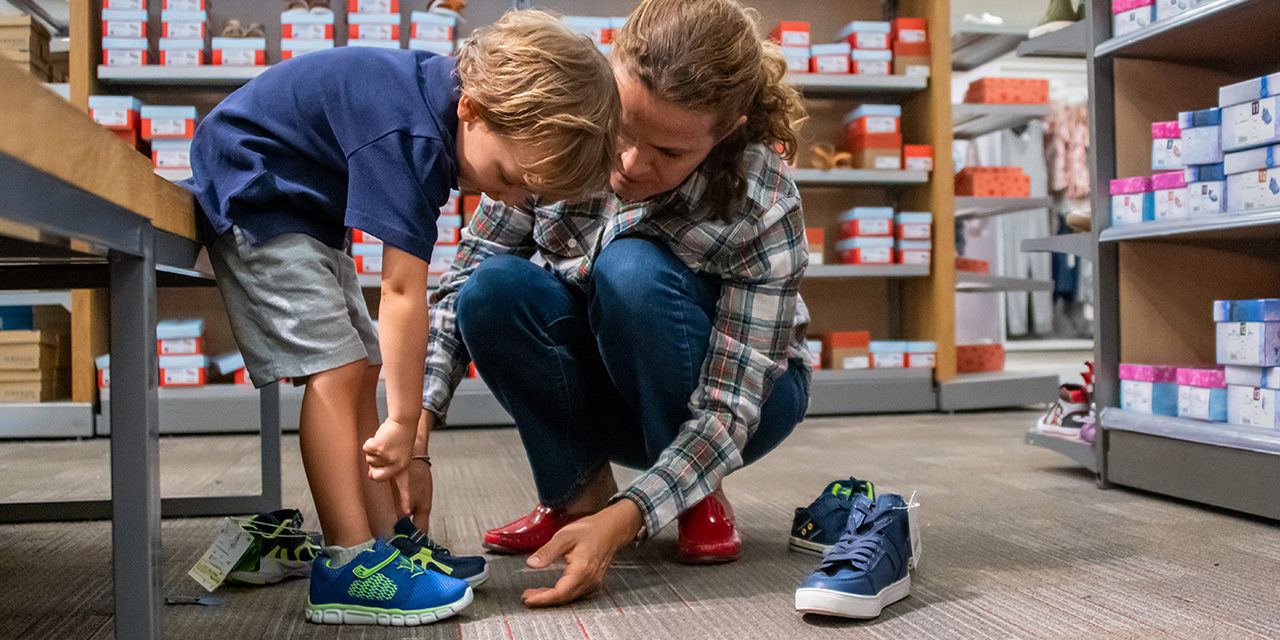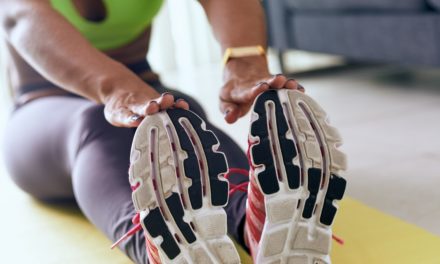Can wearing unsupportive footwear cause orthopedic issues?
The answer is YES, according to Dr. Jessica Drzewiecki, a board-certified podiatrist at Trinity Medical Orthopaedics.
Proper fitting shoes increase support for your feet, knees, and hips, all while lowering the risk of irritation and injury.
“A supportive shoe keeps the heel in its neutral, optimal position throughout the gait cycle,” says Dr. Drzewiecki. She has seen unsupportive footwear cause tendonitis, joint irritation, and stress fractures in her patients.
A Podiatrist’s Best Practices When Shopping for Shoes
Curious about what footwear features Dr. Drzewiecki would recommend if you took her shoe shopping with you? Keep reading for her advice.

Jessica Drzewiecki, DPM
Podiatrist, Trinity Medical Orthopaedics
Look for firm, less flexible, more supportive footwear.
If a patient doesn’t have any foot or ankle issues, I don’t debate them on what feels best for their foot.
But in general, more support is better. That’s how we avoid some of those common conditions, like plantar fasciitis.
Certain conditions might limit the type of shoes you're buying.
I say more support is better, but it does depend on pathology. If someone has a bunion, they might want some added flexibility around their toebox. If a patient has diabetes, they might want a shoe with minimal seams that cause less inflammation and irritation.
Learn to gauge what's a supportive sneaker.
A new sneaker should be resistant. You shouldn’t be able to push the heel and toe upwards and inwards, and likewise, you shouldn’t be able to twist and bend the length of the sneaker.
Looking at the treads on the shoe to see how worn they are is a good way to measure wear and tear. Most people should invest in a new pair of sneakers about once a year, especially if you’re an avid walker or runner.
When it comes to fashion, some shoes are better than others.
I realize some people gravitate toward more stylish shoes that might not necessarily have optimum support. If you try something on and have to tell yourself, “Oh, once I break this in, it’ll feel better,” that’s never a good idea. I would recommend a rounded toe over a pointy toe, and a wedge over a stiletto heel.
Make sure you've [really] got the right size.
I see a lot of people wearing the wrong shoe size. They tell me “Oh, I’ve been wearing the same size since high school,” when really, your shoe size should increase throughout the course of your life. If it’s been a while, it’s important to get your foot size checked.
Learn How Podiatrists Can Support Your Foot and Ankle Health
A podiatrist is a doctor that treats conditions of the foot and ankle, such as bunions, acute injuries, arthritis, deformities, and issues specific to patients with diabetes.
To view a full list of podiatrists affiliated with Catholic Health, please click here.
Make an Appointment with Dr. Drzewiecki
Call (716) 204-1101
Make an Appointment with Dr. Drzewiecki
Call (716) 204-1101





